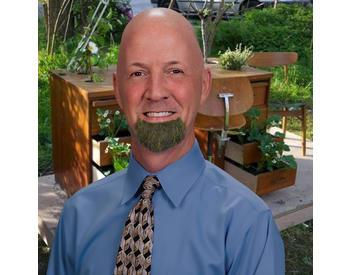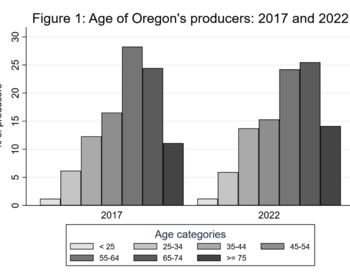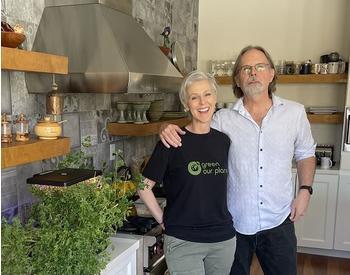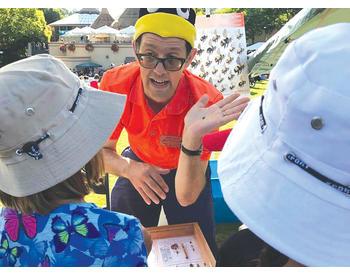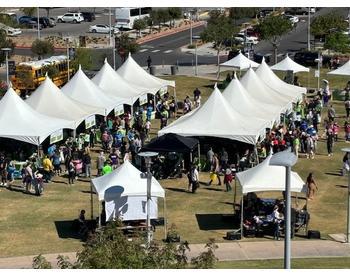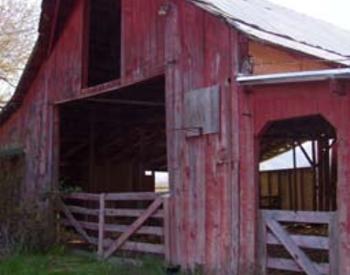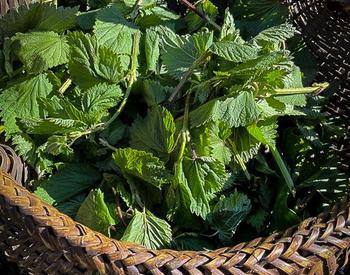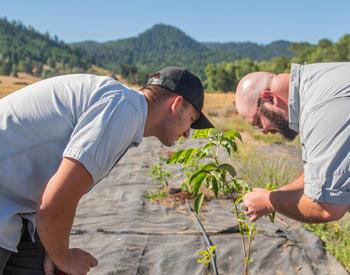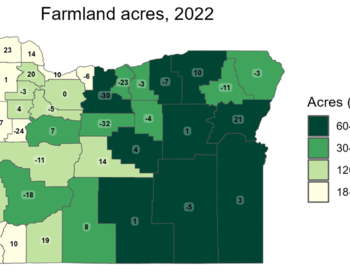KLAMATH FALLS, Ore. – Farming can be a challenge in the Klamath Basin in southern Oregon.
The high desert climate produces wide temperature swings from day to night. The growing season is short. But a visit to a new digital directory highlights resilient small- and medium-sized farmers and ranchers who are producing a rich diversity of agricultural products.
Scrolling through the directory reveals seasonal fruit and vegetables, eggs, garlic, herbs, honey, goat milk, microgreens and pork and lamb. A half-dozen businesses grow flowers, and one farm produces mushroom products for cooking and medicinal purposes. The directory includes a restaurant, a local grocery store, a brewery and a winery.
“It’s amazing to see how diverse agriculture is here,” said Sarah Akbari, who has a split position with Oregon State University Extension Service in Klamath County and Klamath Grown, a nonprofit food hub. “It’s amazing to look through the directory and see that we have people that specialize in growing melons, for example. There is a great diversity of food.”
While the directory gives southern Oregon and northern California residents a chance to meet their farmer, a companion resource allows them to buy from them. A re-envisioned Klamath Grown Online Market launched in December. There, customers can purchase many of the foods and beverages that are produced by the businesses in the directory. The directory provides opportunities for businesses to find out where they can source local ingredients.
The directory also provides an opportunity for people outside of Klamath who are curious about visiting or moving to the area, Akbari said. That kind of economic benefit interests Alison Smith, deputy director for the South Central Oregon Economic Development District, which serves Klamath and Lake counties.
The development district is a strong supporter of the OSU Extension-Klamath Grown partnership because “promoting and buying local food means local dollars stay here,” said Smith, who is also a board member for Klamath Grown.
“That’s vital rural economic development,” Smith said.
Klamath Falls farmer Katie Swanson, a Klamath Grown co-founder and director of community relations for the nonprofit, said the Klamath Basin needs a strong local food system.
“There are so many pieces to a community being able to feed itself,” said Swanson, who owns and operates Sweet Union Farm, a small, diversified vegetable farm in Klamath Falls. “Part of it is cultural and social: Having pride in your community and the land that you live on. That’s important to us.”
Increasing local food awareness
Akbari has contributed to the digital directory and online market of local producers for Klamath Grown’s website as part of her work as an AmeriCorps Resource Assistance for Rural Environments (RARE) service member. The position is supported and funded through a unique partnership of the Oregon Food Bank, Klamath Grown and OSU Extension in Klamath County.
Akbari was hired in September 2022 to work on a campaign to promote local food to the community by creating the digital directory and communicating with customers via social media and email newsletters. She’s also conducting research and surveys that will seek to increase customer accessibility to local products and markets.
“The directory is a great resource for people in the area who want to find local food and who are interested in supporting local farmers,” said Akbari, a University of Oregon graduate who grew up in the Portland metro area. “It’s a great marketing tool for farmers, who can join the directory for free. There’s been so much interest from people who are excited about what Klamath Grown has been doing, so being able to support local food in a rural area has been very impactful.”
Akbari’s next major project is to break down access barriers to local food. She collaborated with Oregon Health & Science University to conduct a survey that generated 200 responses from individuals and families who receive SNAP benefits. One of the goals of the Farmers Market Promotion grant is to create a first-of-its kind Harvest Box for underserved residents.
“None of this would have been possible without OSU Extension,” Swanson said, noting that Patty Case, a professor emerita in the Extension Family and Community Health Program in the College of Health, was instrumental in writing a successful grant proposal to the U.S. Department of Agriculture’s Farmers Market Promotion Program, which was awarded to the South Central Oregon Economic Development District. The district disperses the funds to OSU Extension and Klamath Grown.
“OSU support has been essential to everything we’ve attempted do,” Swanson said.
Through the grant, which was for nearly $250,000, OSU Extension has been providing technical expertise and education in the areas of food systems, small farms, supply chain dynamics, market analysis, drought resiliency, irrigation efficiency, food production efficiency, season extension, nutrition education and public health.
Extension’s role in the grant also includes:
- Facilitating locally grown food bulk sales by schools and serve as the lead for Oregon Farm to School and School Garden Procurement.
- Collaborating on community and school education and promotion efforts to raise awareness of the benefits of eating locally produced food.
- Sharing contacts with relevant OSU faculty, connections to local experts and peers through the Oregon Food Hub Network and other local and regional food networks.
“OSU Extension has established connections and relationships both locally and at the campus level,” Case said. “We knew that we had a lot of ways that we could contribute. The question came up, ‘How can we get the boots on the ground and make things happen in our community?’ That’s where we shine as Extension.”
Blue Zones set the tone
Case, who retired in December, helped bring The Blue Zones Project to Klamath County, resulting in what is now Healthy Klamath. She worked with the Klamath County School District to place a FoodCorps service member in two schools. She also partnered with the county school district and Klamath Falls School District to implement a Farm to School and School Garden Program.
In 2015, Klamath Falls was selected as Oregon's first Blue Zones Project Demonstration Community. The Blue Zones Project brings communities together in a commitment to bolster healthy habits. Blue Zones created a readiness for the Klamath Farmers Online Marketplace, which is now Klamath Grown and the Klamath Grown Online Market. Case said.
“Access to local foods was always something that Blue Zones aimed for,” Case said. “Eventually, our residents will consider supporting local foods as an important value of our community.”

